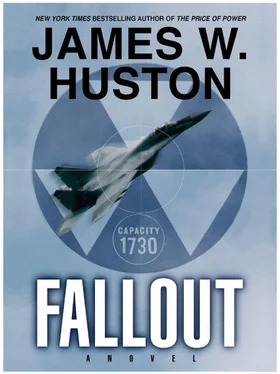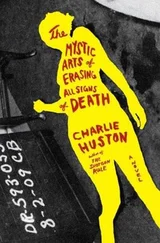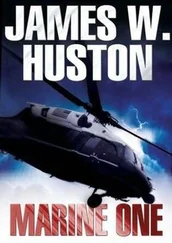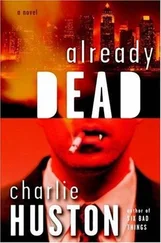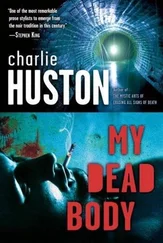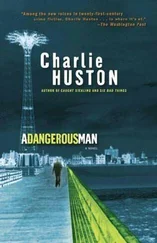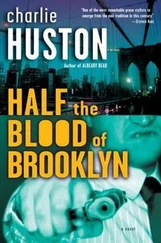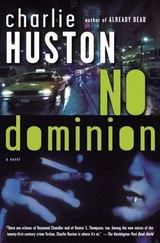“I told you what I knew.”
“It wasn’t enough.”
“I didn’t know what they were planning. It suddenly explains the attack on the weapons depot a few months ago. Now we know what they took—and where it went.”
“You don’t think the government could have been behind that?”
“No.”
She wasn’t so sure. She turned slightly toward him. “If it’s the last thing I do, I will find him.”
“Them.”
“Only one lived.”
“Only one pilot. But how many others had to be involved—the bombs, the men who were with them? It is incredible to me they kept it quiet.”
“He escaped on a submarine.”
He tried not to look at her. “I heard that on CNN. It must be an error. It is not possible.”
“It’s true. It almost certainly means some country was involved.”
“What kind of submarine?”
“Diesel.”
“Many countries have diesel submarines. Russia, China, Iran, India…”
“Pakistan.”
He looked at her sharply. “You don’t really think Pakistan was involved in the attack, do you?”
“Pakistan was involved. They were Pakistani pilots. The only question is whether your government was—”
“They were acting on their own! I assure you.”
“We’ll see about that, I suppose.”
“You think Pakistan would accept your country’s invitation and then send its Air Force pilots there to blow up your nuclear power plant? You think we’re crazy?”
“It was set up by your embassy. They leaned on the Undersecretary of Defense.”
“Yes. Yushaf.”
“You know him?” she exclaimed.
“Knew of him. He was employed by Pakistan. As we now see, he was working for someone else.”
“Who?”
“No one knows. Do you know where he is? We do not.”
“No. He fled before the attack.”
“He has not returned.”
“I find that hard to believe. How do I know you’re telling me the truth?”
“You don’t. But I assure you in the strongest possible terms. We had nothing to do with the attack.”
“You may not even know.”
“I do. You don’t know me as well as you think.”
She glanced at him. “What do you mean?”
“I am a member of ISI.”
“What?” she said, suddenly aware she was talking to the very people she suspected of conducting the attack.
“I have my fingers in many pies.”
“Then why talk to me?”
“Because your country suspects ISI of association with and encouragement of the Taliban of Afghanistan and bin Laden—all kinds of terrorists around the world. You don’t know what we do, so you suspect.”
“Maybe you should tell me all about it.”
“No. I am here to answer your questions.”
“Where is he?”
“Who?”
“The pilot.”
“Sounds like you should follow the submarine. It must go to some port.”
“He could have transferred to a ship, then a helicopter, then another ship, then another helicopter, then a flying boat, then an airliner. He could be anywhere in the world by now.”
“So how would I know where he is?”
“Because you would know.”
He turned the page of his newspaper.
She waited. She sensed he was considering telling her what he knew. She needed a breakthrough. The attack had sent a shudder through the entire intelligence community, like the feeling under your feet when standing on the deck of a large ship as it runs aground. Once again the CIA had been caught with its pants down in South Asia, just as it had when India had conducted its nuclear testing in 1998 and the CIA learned about it through CNN. The President had been angry then. Now, even though there was a different President, he knew the history and was livid. He’d called in the Director of Central Intelligence and screamed at him. Unless he delivered the Pakistani pilot’s head on a platter and found out who was behind this, he was fired. Renee assumed he’d be fired anyway, depending on what certain investigations found out about how four foreign pilots were allowed to operate supersonic fighters inside the United States.
“There have been rumors,” the man said quietly now, rustling his paper, making his voice barely audible to her even though she was leaning in his direction. “Those records we discussed. Back five years. Very odd. Why not fifteen years of records? Why not flight-training records? They seemed incomplete. I followed up.”
“Yes?” she asked, growing impatient.
“There aren’t any records that go back any further.”
“What does that mean?”
“There is an entry that says earlier records were lost and cannot be reconstructed.”
“Is that possible?”
“Yes.”
“So?”
“So my friends in records say that while it is possible, they have never seen it before. Ever.”
“Ever?”
“Not ever. It would be a strange coincidence that no one has ever seen such a thing and then the pilot with those very lost records is involved in a criminal attack and disappears.”
“What do you make of it?”
“We can’t get back into the records now. The entire division is under a total panic, searching all the records of all four pilots. They can’t even talk about it. In the records we did get last week, no photo and no identification, no fingerprints, dental records—nothing.”
“Do you have anything or not?”
“I think maybe Riaz Khan didn’t exist.”
“Of course—”
“I mean, there was no Air Force pilot by that name.”
“How can that be?”
“With lots of help.”
“So who was he?”
“The Air Force is not that big. Pilots are known. Sometimes one group—say, the ones who fly fighters—don’t know the ones who fly tankers. So maybe he comes in as being transferred from some other type of airplane, fresh from training in a distant base, and no one knows him. It is possible. And if they didn’t know him, and they suspected him, they would just assume he is from the ISI and stay away from him.”
“Do you know who he is, or do you not?”
He closed the paper and folded it under his arm. “I don’t know. But I am told there was a pilot in F-16s from an Air Force base near Karachi who has been on extended leave to deal with family problems for some time now. The only one it is true about.”
“You think it is him?”
He covered his mouth and coughed painfully as he walked suddenly away from her. He was afraid they’d been made. She knew better than to look around. She waited for the train that was approaching and, with the rest of the crowd, boarded it.
Katherine listened to the radio all the way to Reno but had learned no new information. There’d been some speculation about a “school” of some sort in Nevada that could account for the presence of the MiGs and the F-16s, but no one could really explain it yet. Katherine drove as fast as she could to the airport to catch the next Southwest flight to San Diego. She made it to the gate ten minutes before takeoff and had been given a yellow plastic boarding pass, numbered 130. She was in the fourth boarding group. She stood on her swollen feet in the closely packed crowd and tried to hear the television that was hanging from the ceiling fifty feet away as a child next to her played with a Game Boy and refused to turn off the sound.
Katherine recognized Carl Allen as the CNN reporter anchoring the coverage, but she also noticed that his demeanor was much less comforting than it had been. Like most of the other passengers in the line, she strained to hear what he was saying.
“We feel it our duty to report that Leslie Monteneri, who had been reporting for us live from the scene earlier this morning, has been taken to the hospital, as have the two helicopter pilots with whom she was flying. At this point we are not sure of the cause of her illness, but we’ve been told it is most likely radiation sickness. The helicopter that brought you those compelling images live this morning from San Onofre was apparently being bombarded with radiation from the damage inflicted on San Onofre by the Pakistani pilots flying American jets. The exact source of the radiation is unclear.
Читать дальше
